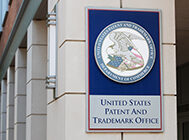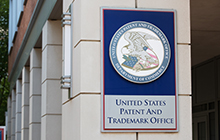 We previously reported on the litigation brought by ModernaTX, Inc. and Moderna US, Inc. (collectively, “Moderna”) against BioNTech SE, BioNTech Manufacturing GmbH, BioNTech US Inc. (collectively, “BioNTech”), and Pfizer Inc. (“Pfizer”) related to Moderna’s mRNA technology and the subsequent inter partes review (IPR) petitions filed by BioNTech and Pfizer. Those IPR petitions were directed at two patents owned by ModernaTX, Inc.: U.S. Patent Nos. 10,933,127 and 10,702,600 (collectively, “the ‘127 and ‘600 patents”). Pfizer and BioNTech’s IPR petitions allege that the ‘127 and ‘600 patents are directed to “the use of mRNAs encoding any spike protein or spike protein subunit of any betacoronavirus, formulated in a broadly claimed lipid delivery system, to induce an immune response.”
We previously reported on the litigation brought by ModernaTX, Inc. and Moderna US, Inc. (collectively, “Moderna”) against BioNTech SE, BioNTech Manufacturing GmbH, BioNTech US Inc. (collectively, “BioNTech”), and Pfizer Inc. (“Pfizer”) related to Moderna’s mRNA technology and the subsequent inter partes review (IPR) petitions filed by BioNTech and Pfizer. Those IPR petitions were directed at two patents owned by ModernaTX, Inc.: U.S. Patent Nos. 10,933,127 and 10,702,600 (collectively, “the ‘127 and ‘600 patents”). Pfizer and BioNTech’s IPR petitions allege that the ‘127 and ‘600 patents are directed to “the use of mRNAs encoding any spike protein or spike protein subunit of any betacoronavirus, formulated in a broadly claimed lipid delivery system, to induce an immune response.”
On March 19, 2024, the Patent Trial and Appeal Board (“PTAB”) of the United States Patent and Trademark Office (“USPTO”) instituted IPR for the ‘127 and ‘600 patents. For both patents, the petitioners argued that the challenged claims were anticipated by US 2013/0266640 A1 (“Schrum”) or obvious based on the combination of Schrum and one of three different prior art combinations. The panel determined that there was a reasonable likelihood that the petitioners would prevail with respect to at least one of the claims challenged in the IPR petitions, noting that (for similar reasons in both decisions) the most compelling argument was that the challenged claims were obvious in view of Schrum and WO 2012/006369 A2 (“Geall”). The panel noted that the other arguments presented closer issues that would be revisited, as necessary, on a fully developed record.
In considering the IPR petitions, the panel found that the five enumerated Fintiv factors weighed in favor of discretionary denial; however, for the reasons explained above, the panel found the merits to be compelling enough to warrant institution. A final written decision for IPR2023-01358 and IPR2023-01359 is expected by March 19, 2025.
On April 12, 2024, Judge Richard G. Stearns granted BioNTech and Pfizer’s motion to stay the district court litigation pending the resolution of IPR2023-01358 and IPR2023-01359. In deciding the motion, Judge Stearns considered three factors: 1) the stage of the litigation, including whether discovery is complete and a trial date has been set, 2) whether a stay will simplify the issues and 3) whether a stay will unduly prejudice or present a clear tactical disadvantage to the nonmoving party.” With respect to the first factor, Judge Stearns determined that it weighed “against a stay, although only just.” While a Markman order had already issued and fact discovery closed several months prior, Judge Stearns noted that “[a] significant amount of work, however, remains to be done before any trial may occur.” With respect to the second factor, Judge Stearns concluded that it weighed “slightly in favor of a stay” because “if the PTAB was to cancel the ‘600 or ‘127 patents (or any subset of claims therein), for example, there would be no need to litigate infringement with respect to these claims. And if the PTAB was instead to uphold the claims, Pfizer and BioNTech would be estopped from raising any invalidity arguments which could have been presented in the IPR.” With respect to the third factor, Judge Stearns concluded that it weighed in favor of a stay since “Moderna seeks only monetary damages” and “although the parties are direct competitors, it is not clear to the court how continuing competition in the market during the pendency of the IPR will cause Moderna any harm.”

